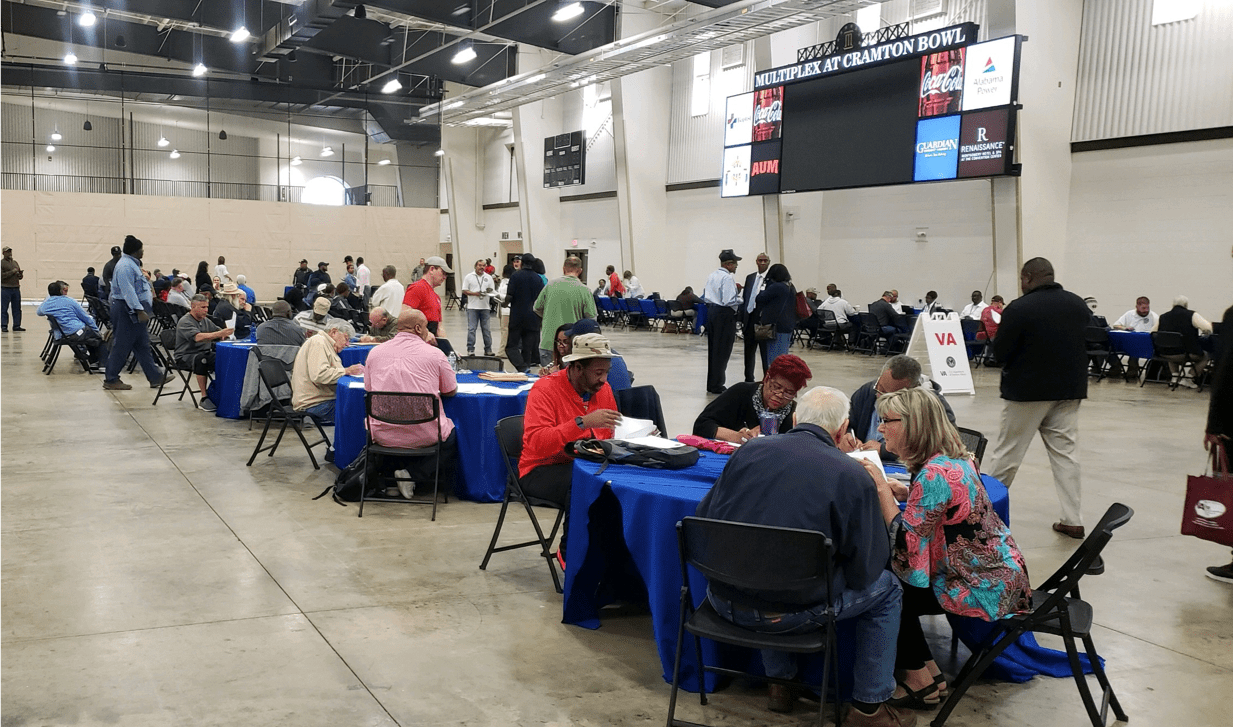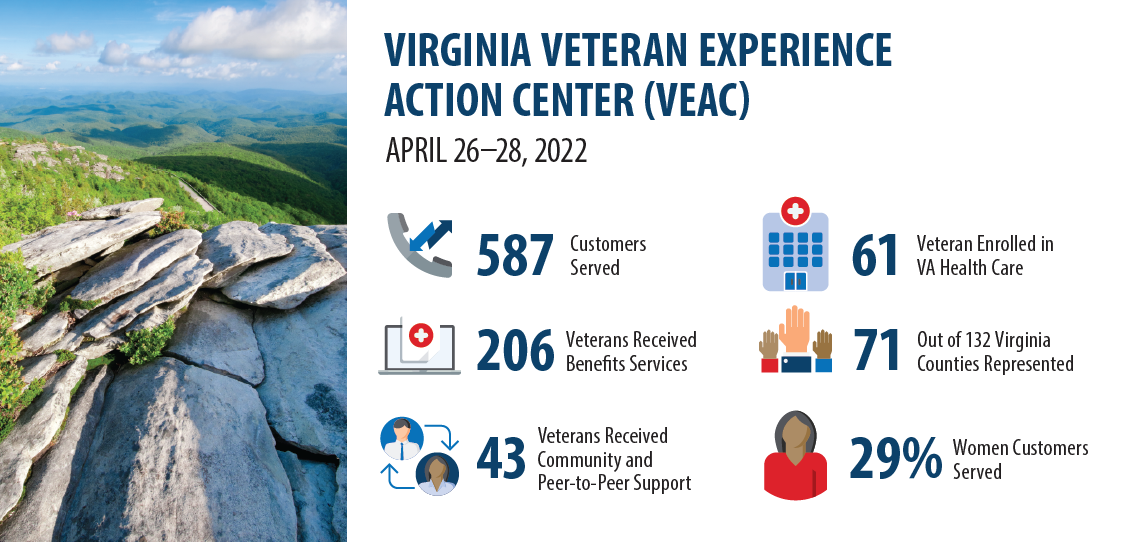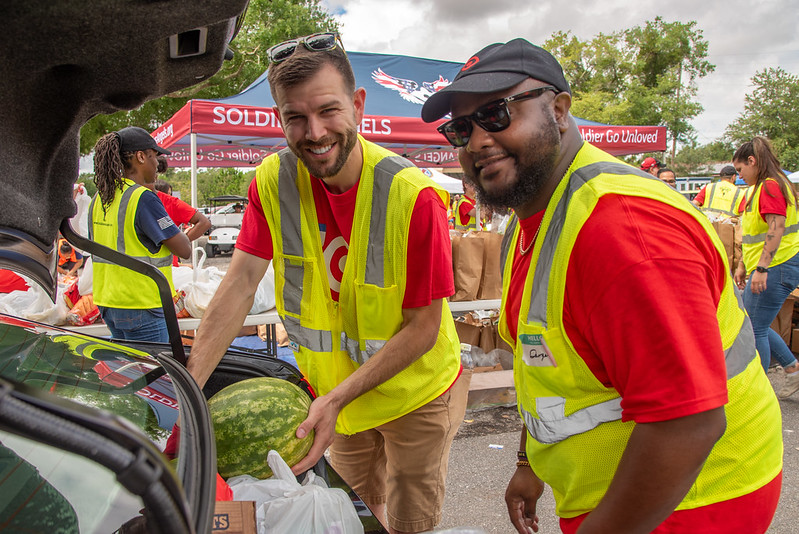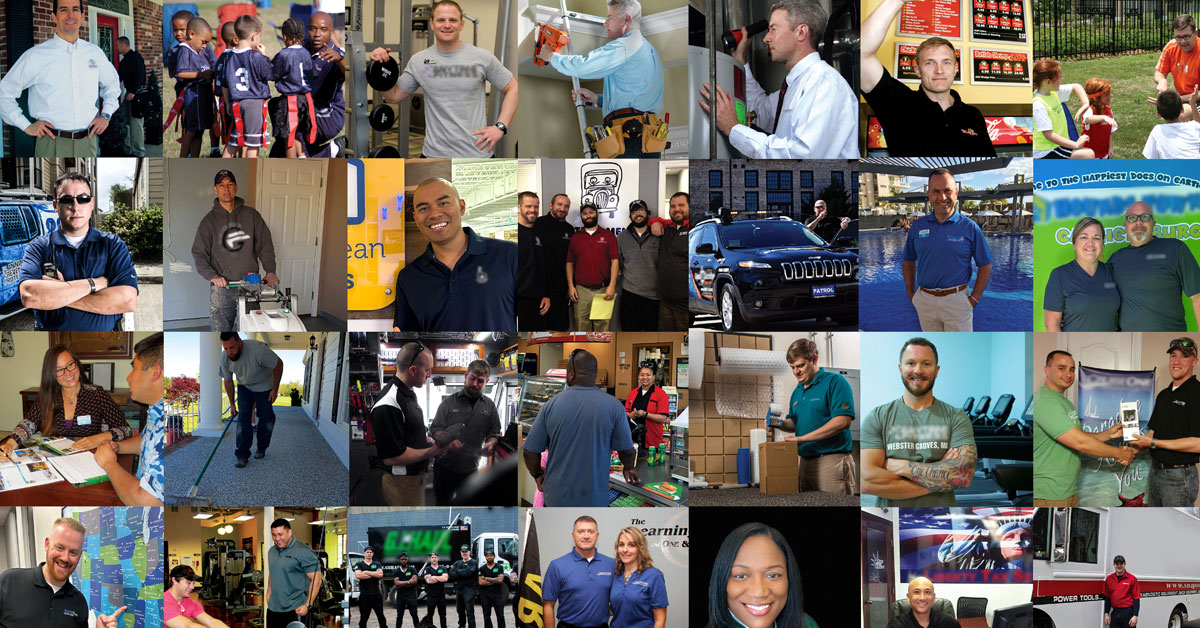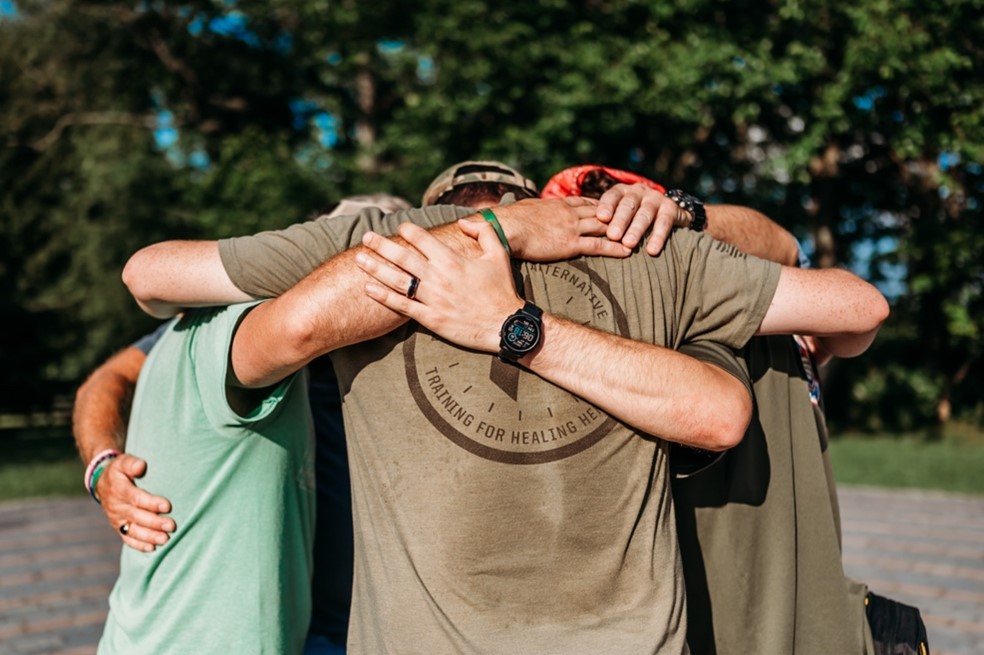Over three days in late April 2022, the Commonwealth of Virginia served as host to a Veterans Experience Action Center (VEAC) held by the VA, Virginia Department of Veterans Services (DVS), and community Veteran stakeholder organizations to help Veterans and their family members gain access to the health care, resources, benefits and services they have earned.
One attendee—a caregiver—reported that her husband, a Veteran who suffers from PTSD, likely would not have attended if the Virginia VEAC had been held in-person because he is easily overwhelmed by crowds.
“Thanks to the Virginia VEAC being virtual, he and his caregiver were able to connect with us and get the information they needed to help get them set up with the health benefits he and his family need,” said James Albino, executive director of the Center for Minority Veterans (CMV). The CMV is a part of the full VEAC team, working the phones and helping connect Veterans and their caregivers to VA and community resources.
The caregiver added that she will be able to sleep better than she has in a long time because of the help she and her husband received at the Virginia VEAC.
Another caregiver who participated in the event described her appointment at the VEAC as “life-changing.”
“She learned that she and her Veteran husband were eligible for [VA] health benefits,” Albino said. “She had been working two jobs, even after her retirement last year, to pay for their family’s health insurance.”
As a result of being enrolled in VA health care, she will be reducing her work hours to care for her disabled spouse and physically challenged daughter. “And, she is eligible for education benefits, and will be looking to take formal family caregiver training,” Albino added. “She got all of this from a 30-minute virtual appointment. She actually spent more time telling me the story [than she spent with appointment services].”
“I had one Veteran caller who stood out amongst the rest, as she was not aware of any of her VA benefits,” said CMV Program Analyst D’Andrea Jacobs. “I first got her linked with the Veterans Benefits Administration [VBA] for her intent to file for VA [service-connected disability] compensation. After speaking with her and realizing that she is a survivor of Military Sexual Trauma [MST], I realized she also needed to see if she was eligible for health care through the Veterans Health Administration [VHA], along with other potential service-connected issues.
“I created a rapport and safe environment with this caller and came to further realize that she needed counseling, so I referred her to community resources. The caller was appreciative of our efforts to provide outreach and assistance to her. With our assistance, she is assured she will get support for her and her dependents.”
How VEACs help Veterans
In addition to the VBA, VHA, and peer-to-peer support, VEACs also assist Veterans with the Board of Veterans’ Appeals (BVA), National Cemetery Administration (NCA), and multiple Veteran-focused community services and resources.
The Virginia VEAC connected 587 Veterans to VA services. Of the Veterans and families who attended their VEAC appointment, nearly half completed the VEAC Community Signals survey, with 75.5 percent giving the event an overall positive score.
The VEAC was open to all Veterans residing in the Commonwealth of Virginia. Fairfax County, about 15 miles from Washington, D.C., had the highest number of VEAC attendees (9.9 percent) of all counties.
This virtual VEAC was particularly successful in providing access to earned services to historically underserved women Veterans with 29.1 percent of total attendees being women Veterans—far surpassing the 13.8 percent of Virginia’s women Veteran population.
How VEACs work
VEACs are a collaboration to include representation from VHA, VBA, National Cemetery Administration, Board of Veterans’ Appeals, state departments of Veterans affairs and community partners working together to offer one-on-one personalized assistance for: VA benefits, VA health care, crisis resources, memorial affairs, community services and more. Veterans, service members, caregivers and survivors make appointments online. They select the optimal time and day to fit within their availability. At the end of each appointment, VA gathers feedback from those served.
VEACs began four years ago to proactively assist Veterans, transitioning service members, family members, caregivers and survivors as a one-stop resource.
Check out the VEAC website to see if we’re headed your way.
Topics in this story
More Stories
Soldiers' Angels volunteers provide compassion and dedication to service members, Veterans, caregivers and survivors.
Veterans are nearly three times more likely to own a franchise compared to non-Veterans.
Built by Veterans for Veterans, Warrior PATHH is an in-person program designed to train you to manage struggle, trauma and hardship.

